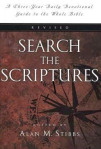Study 16 From The Book of Numbers
is: Numbers 22. The story of Balaam
This is a difficult story. Before tackling it, it will probably be
helpful to read 2 Pet. 2:15, 16; Jude 11; Nu. 31:16 and Rev. 2:14, which give a
clue as to Balaam’s true character and motives.
1.
Balaam’s influence and
relationship to God are interesting.
Think about them. Consider also
Moab’s fear in the face of Israel’s advance. What does this show concerning the
ways in which God works?
2.
What was the ‘chink’ in
Balaam’s armour? Why did his ‘guidance’ seems all confused after that? Contrast
verse 12 with verse 20, 22, 32, 35. What
ought we to learn from his failure? Do you think, 10 Rom. 14:22b, 23 and 1 Tim.
6:9, 10 give us a similar warning?



